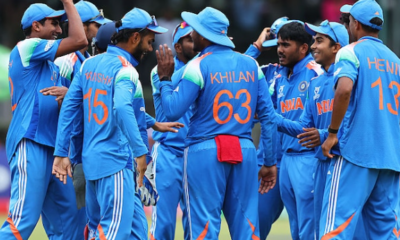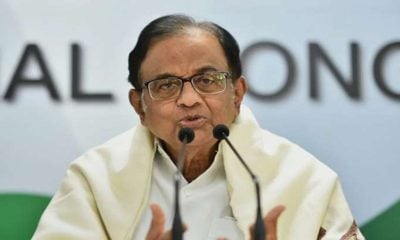Panelists warn that the challenge is to actually implement the promises
The Indian National Congress party released its manifesto for the 2019 Lok Sabha elections, called Jan Awaz, with the tagline Hum Nibhayeegein (We will do it). The manifesto was released in the presence of Congress president Rahul Gandhi, Sonia Gandhi and former prime minister Manmohan Singh. The party said it held 121 public consultations and 53 closed-door talks to prepare the manifesto. Rahul has promised that if voted to power, his party will ensure 20 percent of India’s poor – about 25 crore citizens or 5 crore families – a minimum income guarantee of Rs 72,000 a year. APN’s popular debate Muddadiscussed the issue. Anchorperson Vandana posed the questions to panelists, including the Congress’s Ajay Verma, BJP’s Anita Aggarwal, SP’s Manoj Yadav, NCP’s Mahesh Chauhan, political expert Rai Tapan Bharti and APN consultant Govind Pant Raju.
Verma said: “The manifesto has been prepared after extensive talks. All polices announced are doable and not empty promises. The BJP has been treating voters like ‘use and throw’. The Congress is not like that. Unemployment, minimum income guarantee, all the promised schemes are possible, money is there to be efficiently utilised.”
Vandna asked Verma, why Rahul insisted on naming Modi. To this, Verma said: “He is the prime minister, it is okay to mention him.”
Aggarwal said: “Congress was there for decades, why were they not able to wipe out poverty earlier? It is the BJP that is thinking about the poor, toilets, jobs and gas connections for them and so on. People know this. They have mocked the PM as being a chaiwala. How can they think of the poor?”
Yadav said: “It is just and fair for the parties going to the polls to release the poll manifesto. But the important thing is how many of these promises get fulfilled. BJP should be thinking of its false promises too.”
Chauhan said: “Congress has included all groups, farmers, poor, youth and so on. The minimum income guarantee is a good scheme, and worth lauding.”
Vandna asked Verma to talk about the time when it had formed the government. Verma said: “Our maximum plans were geared for the poor, but this so-called Vasco de Gama has rubbished all the development.”
Raju said: “Congress’ Garibi Hatao slogan turned out to be complete failure. Congress had a lot of opportunity to prove that it was sincere in uplifting the weaker sections. Rahul has accepted that Congress’s earlier manifestos failed to live up to expectations that were raised, and he added that is why it had consulted experts this time. But where is he going to get the funds to dole out minimum wages to the poor? It is more that the change in the defence budget. Is this feasible? All these sounds good but the ground reality is different.”
Tapan said: “I can see the Congress getting desperate. How can farmers’ budget be different, when even the rail budget is being scrapped? Manifestos are not legally binding, so parties say anything. How will Congress get the funds to dole out cash to the poor? Will the taxes rise? Middle class will suffer then. Rahul says he will simplify GST–obviously aiming to appeal the business class.”
Vandna then took up the issue of Congress’s promise to probe the Rafale deal.
Aggarwal said: “The Congress does not trust even the Supreme Court. Congress has not set up a single factory in Amethi. There is a lot of difference in what they say and what they do. Why haven’t they mentioned the Ayodhya issue in the manifesto?”
Verma said: “Congress is against dictatorship. We don’t believe in telling lies.”
Yadav said: “BJP had a clean sweep last time. Modi should also accept the faults of his government, and promise to improve the figures.”
Chauhan said: “This is a poll manifesto, not a budget. Rahul’s promised Rs 72,000 for the poor depends on the funds at hand. For Rafale, we wanted a joint parliamentary committee (JPC) probe, that is why Rahul must have mentioned about further probe into Rafale.”
Raju said: “SC has given a clean chit to Rafale. Regarding the promise of Rs 72,000 to the poor, many opposition leaders, like Mayawati, too have criticised this.”


 India News13 hours ago
India News13 hours ago
 India News13 hours ago
India News13 hours ago
 Latest world news13 hours ago
Latest world news13 hours ago
 Latest world news7 hours ago
Latest world news7 hours ago
 India News7 hours ago
India News7 hours ago
 Cricket news7 hours ago
Cricket news7 hours ago
 Latest world news2 hours ago
Latest world news2 hours ago
 Cricket news2 hours ago
Cricket news2 hours ago















